Worm castings are the best fertilizers of nature that improve soil structure and plant growth. These are the refined organic materials that soil organisms consume, such as earthworms.
Therefore, worm castings have tremendous benefits for the soil and potted plant health. In addition, worm castings or organic fertilizer enhances soil aeration and repels plant pests.
So, what makes worm castings so beneficial for soil and plants? The following discussion will highlight the benefits of worm castings and their importance for plants and the soil. Also, how to make worm castings for potted plants?
What Are Worm Castings?
Worm castings, also known as vermicast or worm poop, are 100 percent organic material produced by soil worms such as earthworms. It is also synonymously used with earthworm castings or vermicomposting.
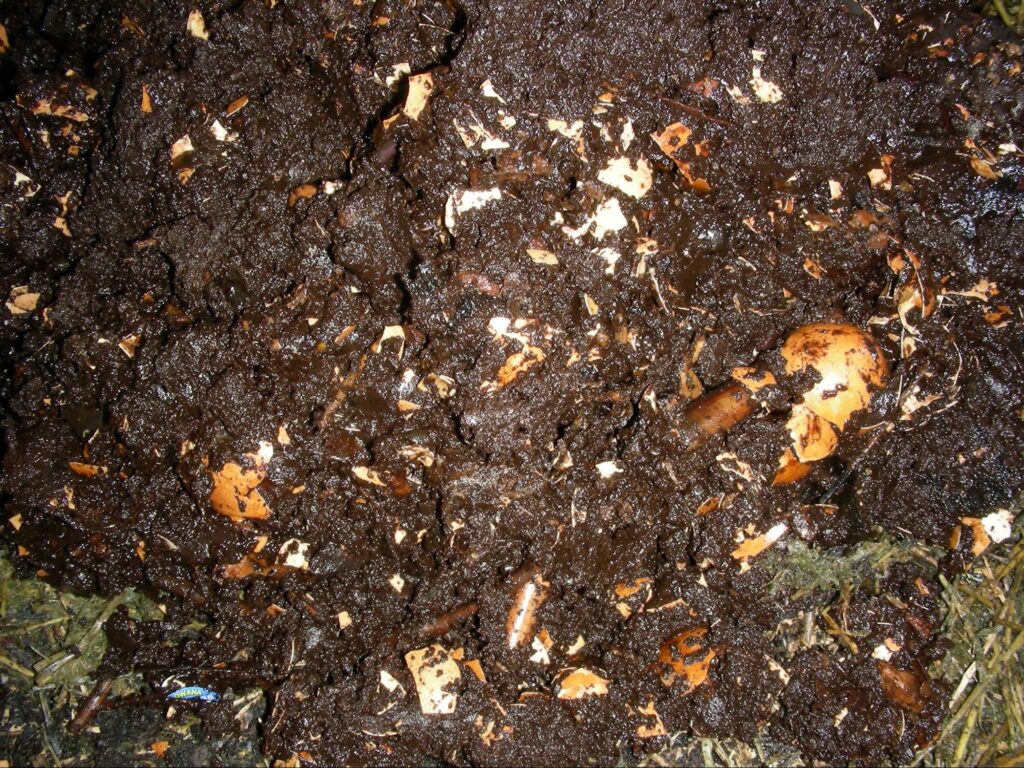
Worm castings are the by-product of the digestive activities of earthworms. In other words, it is earthworm poop because these soil worms, while residing in the soil, feed on organic matter and then secrete it as organic worm castings. These are full of essential nutrients, beneficial microbes, and a set of enzymes.
Earthworm castings appear as football-like particles that improve soil aeration and drainage capacity. But, on the other hand, these castings improve the water retention capacity within the soil. Moreover, worm casting repels harmful pests and plant diseases.
The essential nutrients and beneficial microbes tremendously work on soil structure and plant growth. Therefore, worm castings are a fantastic alternative to chemical fertilizers.
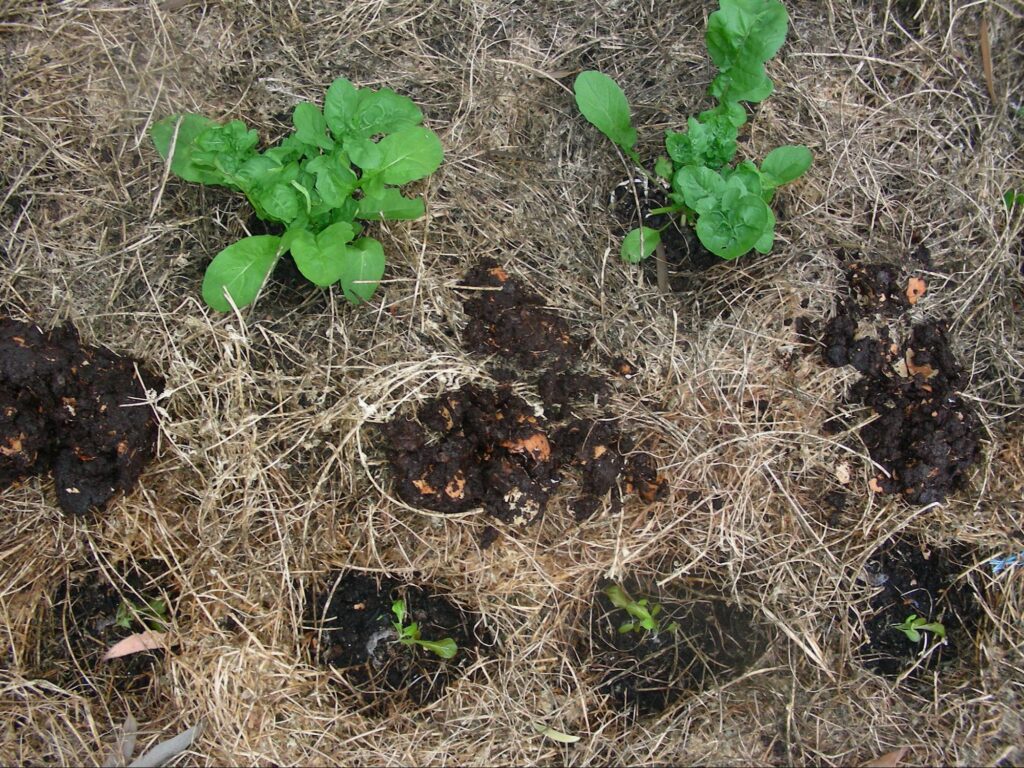
What Makes Worm Castings So Unique?
Worm castings enrich the soil with nutrients because the worm poop is water-soluble, making it easier for plants to absorb essential nutrients readily. In addition, the pure worm castings release nutrients over a more extended period into the soil and improve plant nutrient absorption.
When nutrients are readily available for a longer run, the plants show more significant growth and resistance to insect pests and harmful microbes.
Worm casting contains higher iron, sulfur, calcium, nitrogen, potassium, phosphorus, zinc, and magnesium. Even these castings are richer in nutrients, making them much better than bulk compost and chemical fertilizers.
Chemical fertilizers undoubtedly contain shots of essential nutrients, but these are available only at once and for a short time. At the same time, the rest of the nutrients leach out. However, this is not for worm casting, an organic fertilizer full of nutrients and beneficial microbes.
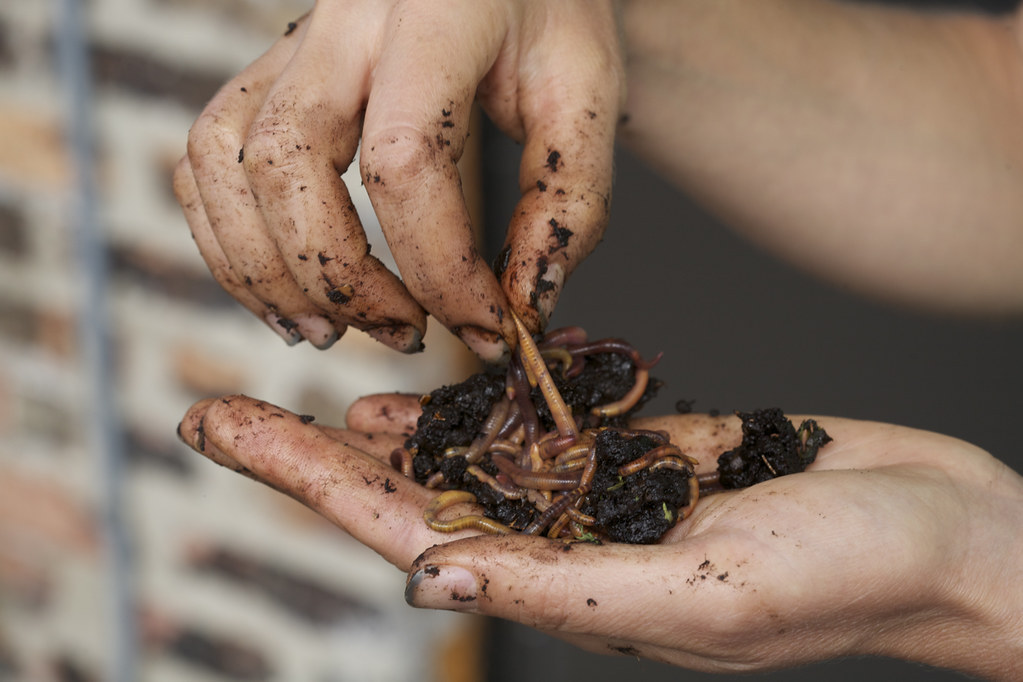
This organic fertilizer releases nutrients slowly in the soil for a longer time. So that plants can fully benefit from it. Also, the earthworm castings are non-toxic to the environment and natural waterways.
Worm castings improve plant health and growth. They improve the flower quality, color, and size of ornamental plants. In addition to that, this organic fertilizer significantly improves the root growth of garden vegetables.
A spray made up of worm castings results in 100 percent organic and healthy spray for indoor plants. Continuous spraying of this organic material will improve the houseplant’s nutrient status. In addition, it can easily be sprayed directly on houseplants to recover from insect injury and nutrient deficiency.
What Are the Amazing Benefits of Worm Castings?
The following are benefits of worm castings, and these are far beyond plant growth:
- Worms castings introduce beneficial microbes such as bacteria and fungi
- Earthworm castings contain humic acid, which increases plant nutrient absorption
- Worm castings function as soil enrichers—they make soil hold water and maintain moisture levels
- They are a superfood for houseplants and garden vegetables because worm castings contain four to five percent more nitrogen than usual compost. These nutrients are also readily available to plants.
- Worm castings add organic matter to the soil and improve soil structure
- One of the best benefits of worm castings is preventing houseplants from diseases and pest infestations.
- Worm casting has a neutral pH. Their additions in garden soil and potting mix improve the soil pH. Adding homemade worm castings or commercially available neutralizes the acidic or basic (alkaline) pH.
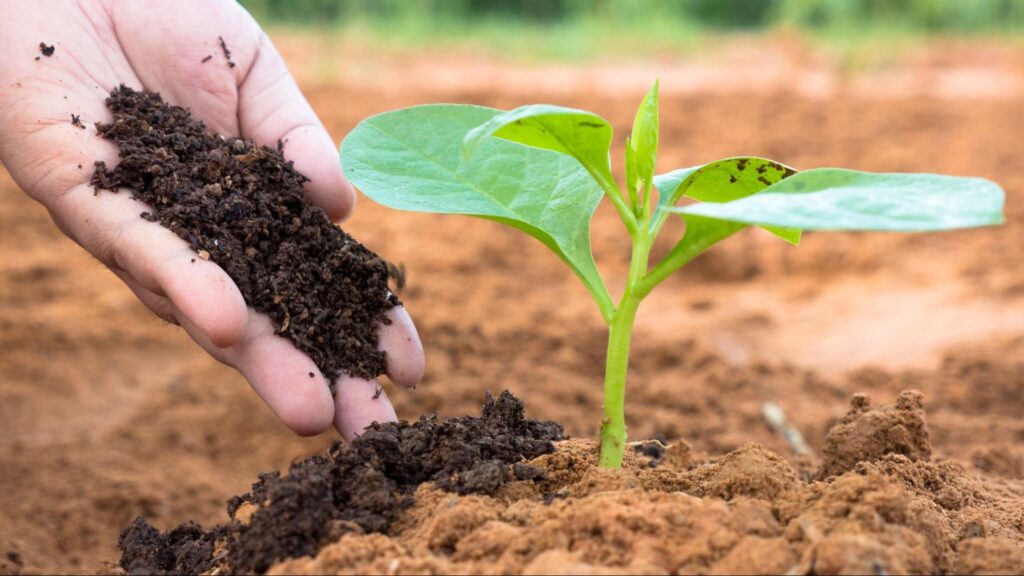
Worm Castings and Potted Plants
Worm castings are great for houseplants except for lucky bamboo and lotus bamboo—the worm poop or compost help houseplants to deter pest infestations and maintain their growth. At the same time, this worm compost maintains the pH of potting soil and supports nutrient absorption.
How to Use Worm Castings For Potted Plants and Garden Soil?
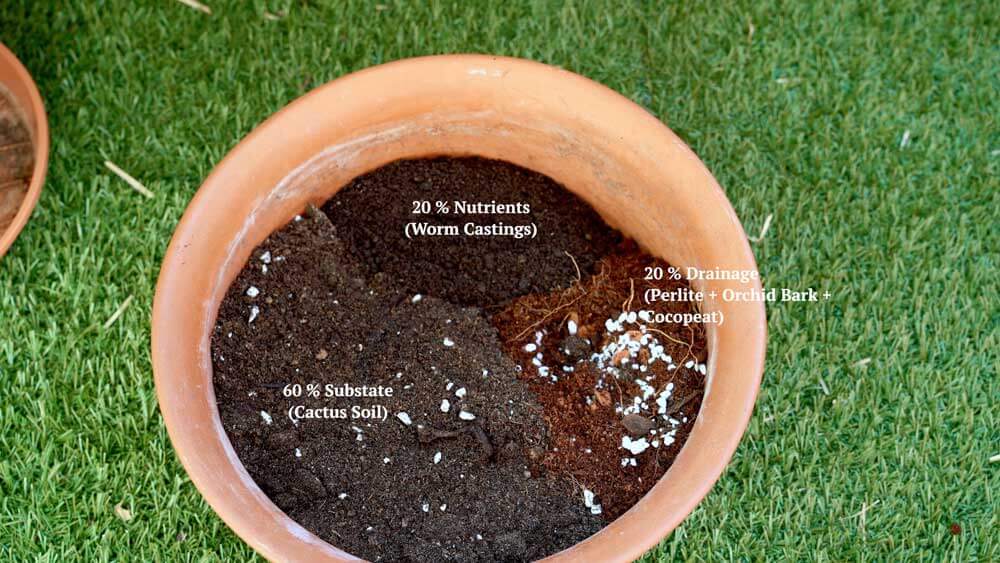
The worm castings can be in the following ways for potting mix and garden soil:
For the Houseplant Potting Mix
Mix one part of earthworm castings with three-part of soil (substrate and orchid bark). This potting mix is also suitable for new houseplants. The plants already established in pots scratch the soil with hands or spatula and add 1/2 inch to 1-inch worm castings. Repeat this process every two to three months.
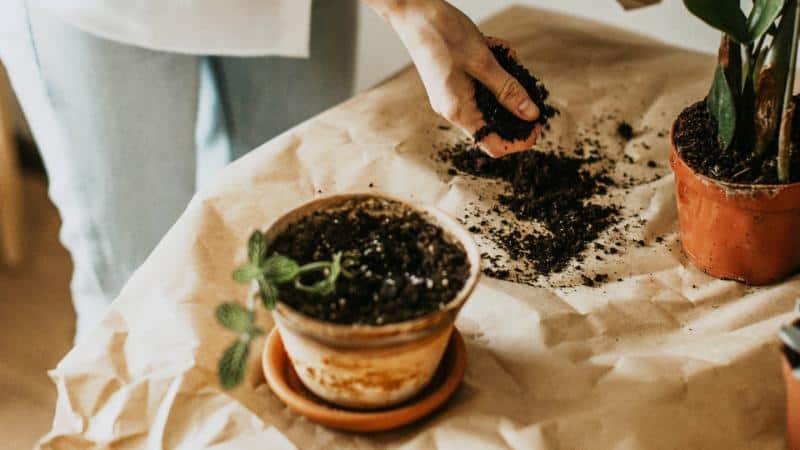
On the other hand, for newly purchased houseplants, mix 10 percent of worm castings with substrate soil and add 1 percent of castings on top of the ground before planting in a pot.
The houseplants already established in pots mix one percent of worm castings up to 1/2 inch of soil or as topdressing, then water the pots properly. Repeat this process every month.
Worm Castings for Garden Soil Mix
Worm castings do wonders for gardens because they act as soil builders. To maintain a healthy and lush green garden, mix 1 to 3-inch layers of worm castings in the soil with a spade. These castings can apply as a top dressing or incorporated into the ground.
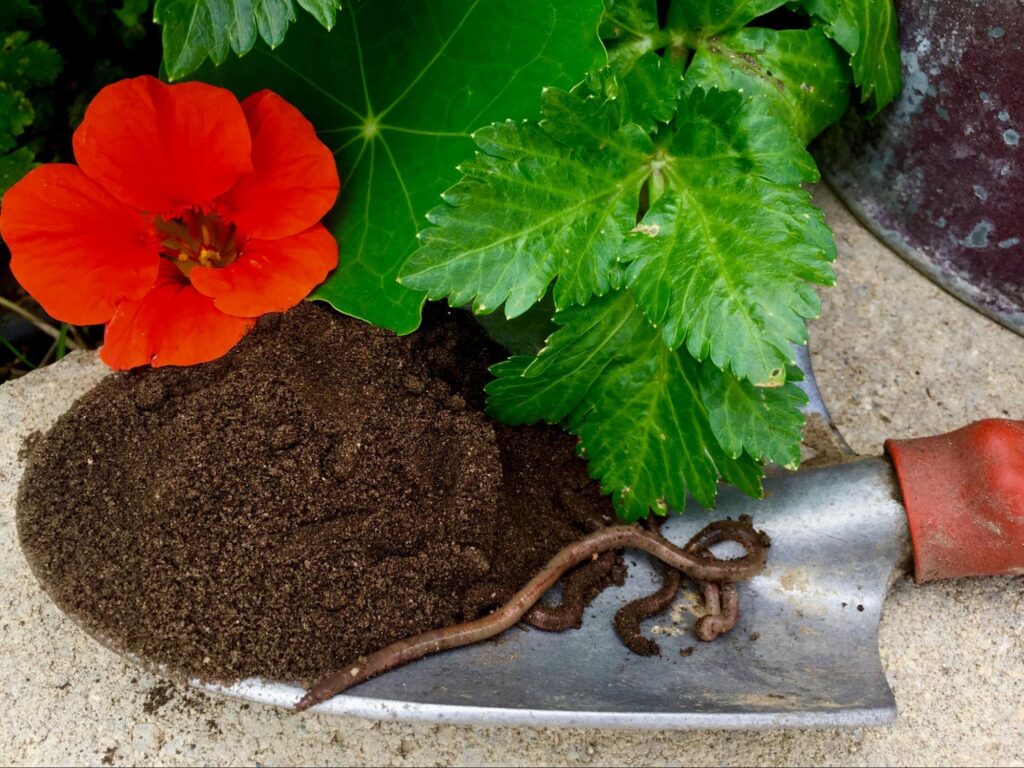
What is Worm Tea and How to Make it?
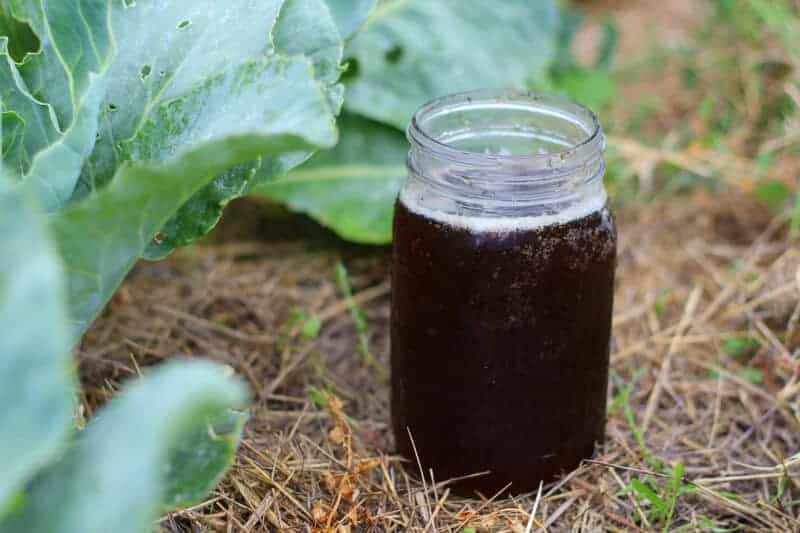
Worm tea is the most effective and natural fertilizer that helps plants grow faster and fight insect pest infestations. It is easy to make and apply to houseplants and garden plants.
To make worm tea, mix one part of worm castings with three parts of water. Place this mixture overnight and slowly shake this mixture every time. Take 8 ounces of worm tea per plant or 4 ounces per gallon of water for foliar spray. This mixture will wash off the adult pests of houseplants and improve their growth. Reapply this mixture every two months.
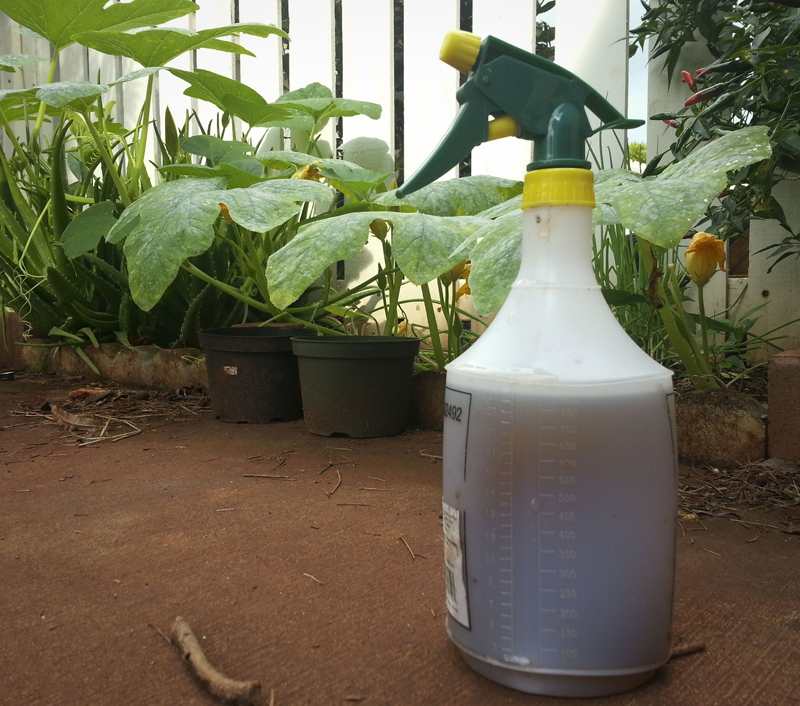
Worm Castings: Where to Get?
The process of worm castings is natural. Once the red wigglers or earthworms are in the soil, they will continue to work on soil and enrich it with microbes and nutrients. There are two ways to get worm castings. One is commercially available from the compost worm farm, and the second is to maintain at home in the worm bin.
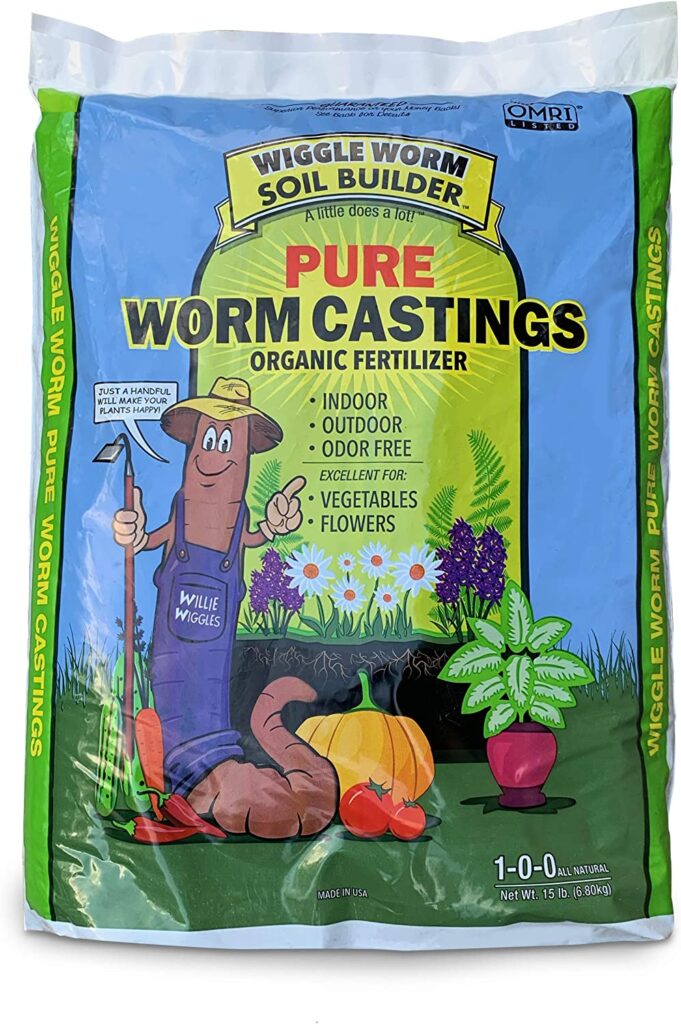
The commercially available worm poo or castings are similar to the home worm bin. These can readily apply potted plants and garden soils. Many gardeners add red wigglers to their outdoor compost or piles (dead leaves, tree barks, vegetable peels, and eggshells). These earthworms then work on this organic material and speed up the castings process to benefit plants.
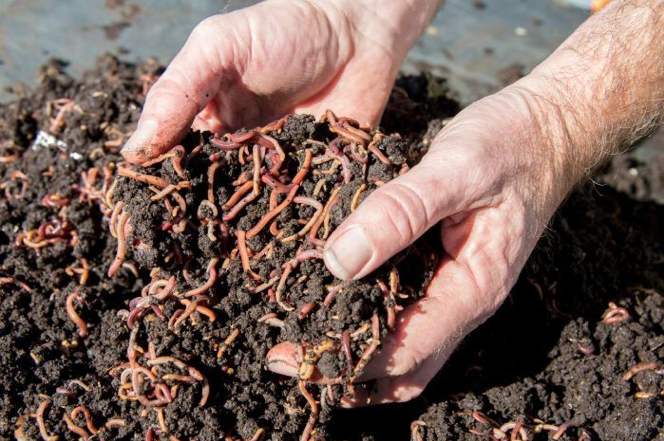
These are maintained in small bins, containers, and large beds for homemade worm castings. The earthworms are then fed on food waste and garden waste; after providing the food items, the earthworm digests and excretes them as earthworm castings. Later, this worm poo is ready to harvest and use for garden and potted plants.
Are Worm Castings Replaced With Chemical Fertilizers?
Worm castings are a great source of nutrients and beneficial bacteria for plants and soil. And these castings are far better than chemical fertilizers because they contain four to five percent more nutrients and slowly release them. These nutrients are readily available to plants and do not leach, as happened in the case of chemical fertilizers.
Worm castings also help in the seed germination of garden plants and vegetables. And maintain their healthy growth to fight pests and microbes. Therefore, add worm castings in gardens and house plants instead of chemical fertilizers.
Frequently Asked Questions
Is Worm Castings Better Than Compost?
Worm castings are better than usual compost because they are full of special enzymes and nutrients, superfoods for plants. As a result, they support plant growth, flower size and quality, color. In addition, using worm poo in an indoor garden is a repellent of harmful pests and diseases.
Do Worm Castings Smell?
Worm casting is, also known as black gold, does not have a stinky smell, nor does it burn the plants. Instead, it smells like forest soil wonderfully. However, if it produces a foul, rancid odor, it means the worm containers are out of balance.
Can You Put Worm Castings on Top of the Soil?
Absolutely yes, there are two methods by which worm castings are applied. One is top dressing, and the second is incorporation into the soil. For example, add 1 to 3 inches of earthworm castings in mud and then incorporate it through a spade. Or apply one inch of worm castings as topdressing, then water the soil and scratch it with the help of a spatula.
Can You Grow Directly in Worm Castings?
Worm castings are a healthy source for seed germination and growth of houseplants. Therefore, plants can directly grow in worm castings to achieve healthy and disease-free plants. Moreover, worm castings can be used as compost tea, making up one part of worm poo per gallon of water.
This tea serves the goal of foliar spray and washing off unnecessary insects.
What Are Worm Castings Good for?
Worm castings are suitable for many reasons:
- They add organic matter to the soil
- It neutralizes the soil pH
- Repels houseplant pests
- Prevent plant diseases
- Improve soil structure, reduces compaction and crusting
- Increase water retention capacity and does not let the soil dry out
- Support seed germination and plant growth
- Make nutrients in an available form
- Reduces soil erosion
How Do You Put Worm Castings in a Potted Plant?
To add worm castings in potted plants, add one to two inches of castings in soil and water the pots. The other method of adding worm casting is in container plants as a substrate. Reapply the worm castings after every month to stimulate the nutrient absorption process.
Which is Better: Bat Guano or Worm Castings?
Both bat guano and worm castings are better because they provide the same benefits to soil and plants. Bat guano is an excellent nitrogen, phosphorous, potassium, and zinc source. It enriches the soil with nutrients, just like worm castings. It increases soil aeration and improves soil texture and structure. Also, it enhances the soil drainage capacity similar to worm castings. So the application of both bat guano and worm castings is better.
Can Earthworms Ruin Your Lawn?
Earthworms do not cause any harm to your lawn. However, the only alarming situation is these worms have too many nutrients that may cause nutrient toxicity due to overabundance.
What Are the Disadvantages of Worm Castings?
Worm castings are a tremendous source of nutrients and a good maintainer of soil structure. However, with all these excellent benefits for plants and soil, worm castings have a few drawbacks, and these are:
- Worm casts cost more than chemical fertilizers because of maintenance. But, they are a great source of nutrients compared to other organic fertilizers.
- To harvest quality worm castings takes time. It requires a minimum of ninety days or a year to obtain a quality and full of nutrients castings.
Sources for Further Reading
- Vinje, E. (2020, February 27). Worm Castings: Plant Superfood. Planet Natural. Retrieved March 3, 2022, from https://www.planetnatural.com/worm-castings-benefits/
- D. (2021a, July 4). Worm Castings 101: Benefits to Plants and Soil. Homestead and Chill. Retrieved March 3, 2022, from https://homesteadandchill.com/worm-castings-101-benefits/
- About Worm Castings (worm poop). (n.d.). University of California Agriculture and Natural Resources. Retrieved March 3, 2022, from https://ucanr.edu/sites/mgfresno/files/262372.pdf
After learning about worm castings, check out our other plant care tips:
10+ Natural Pest Control for Houseplants to Protect Them from Insects and Diseases







